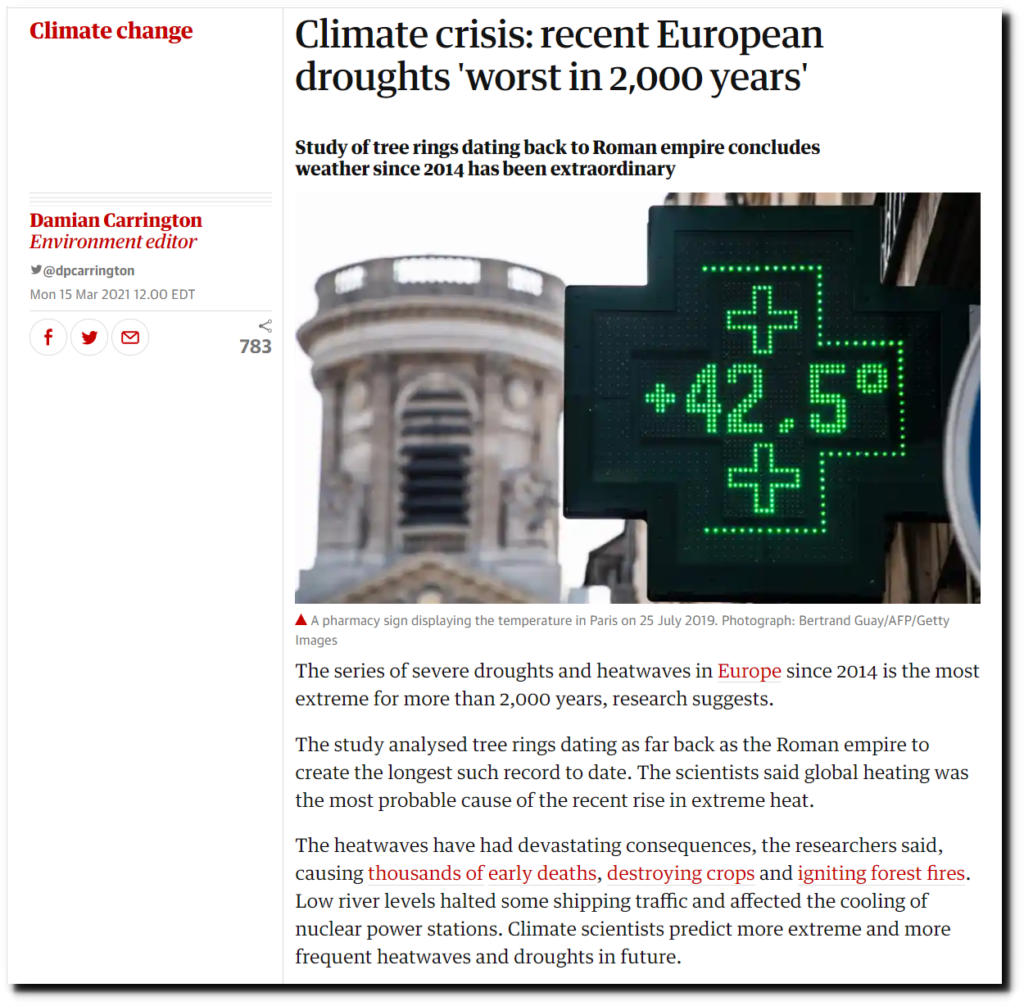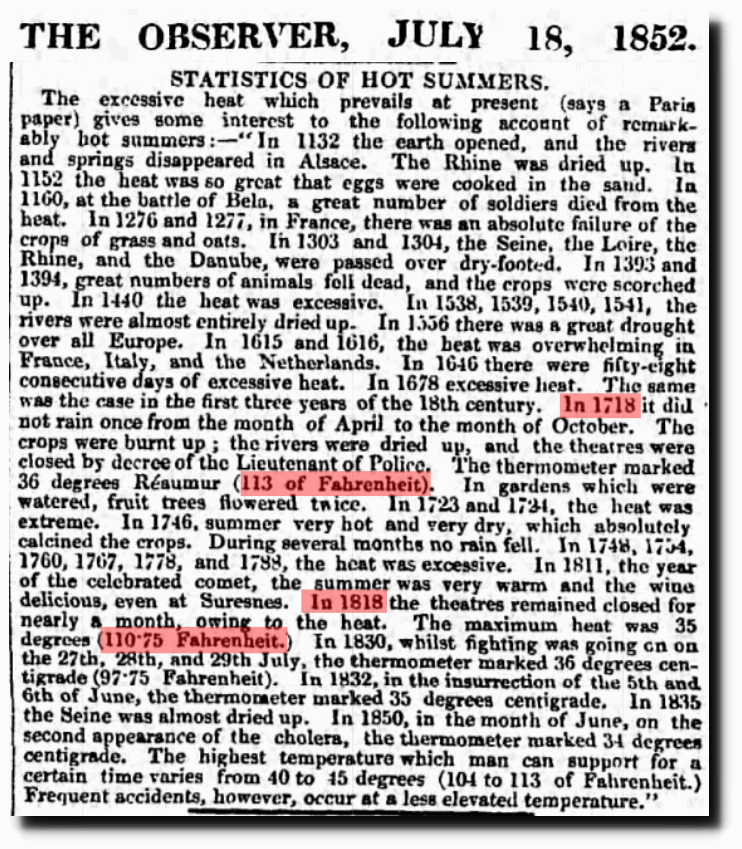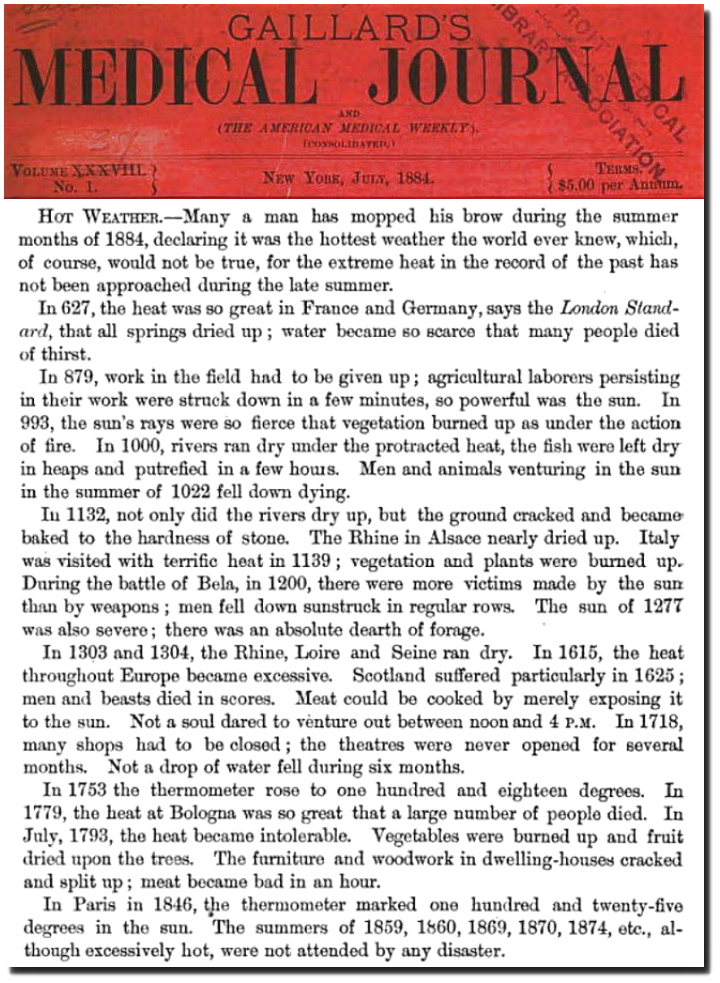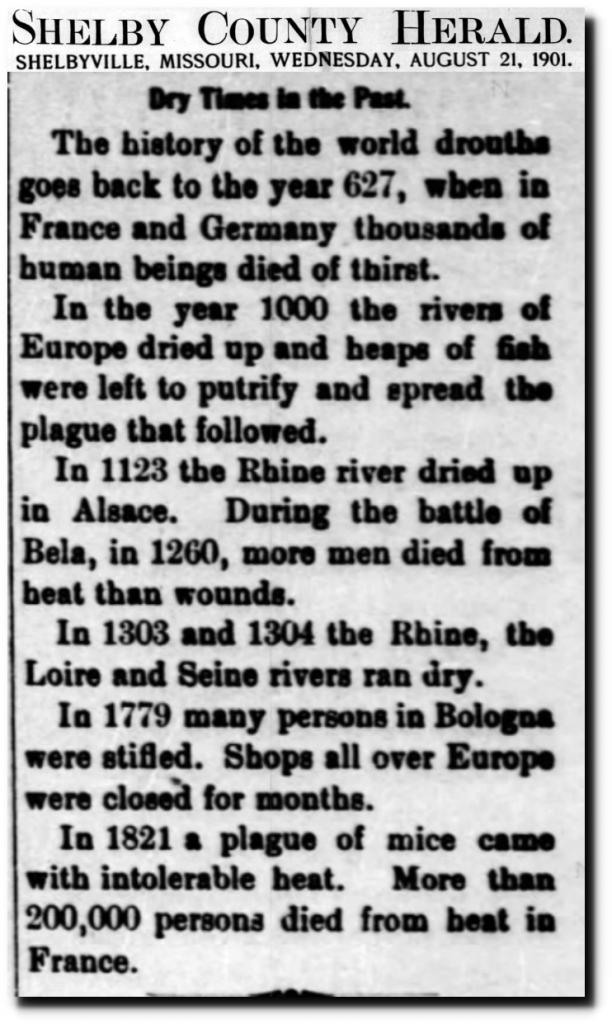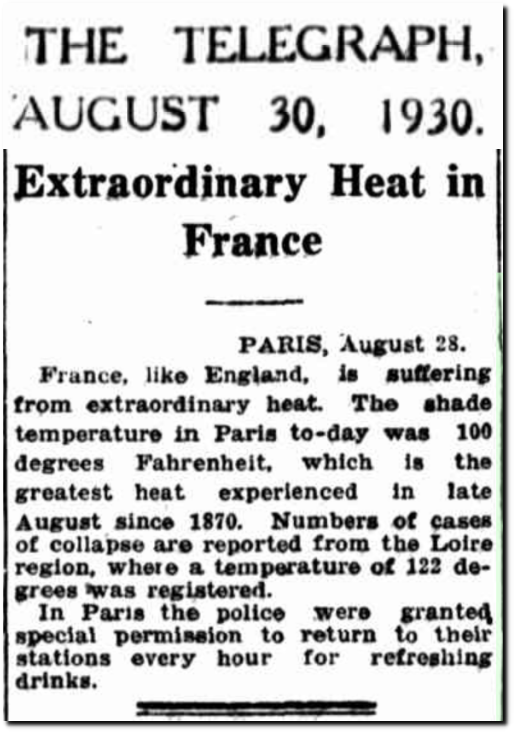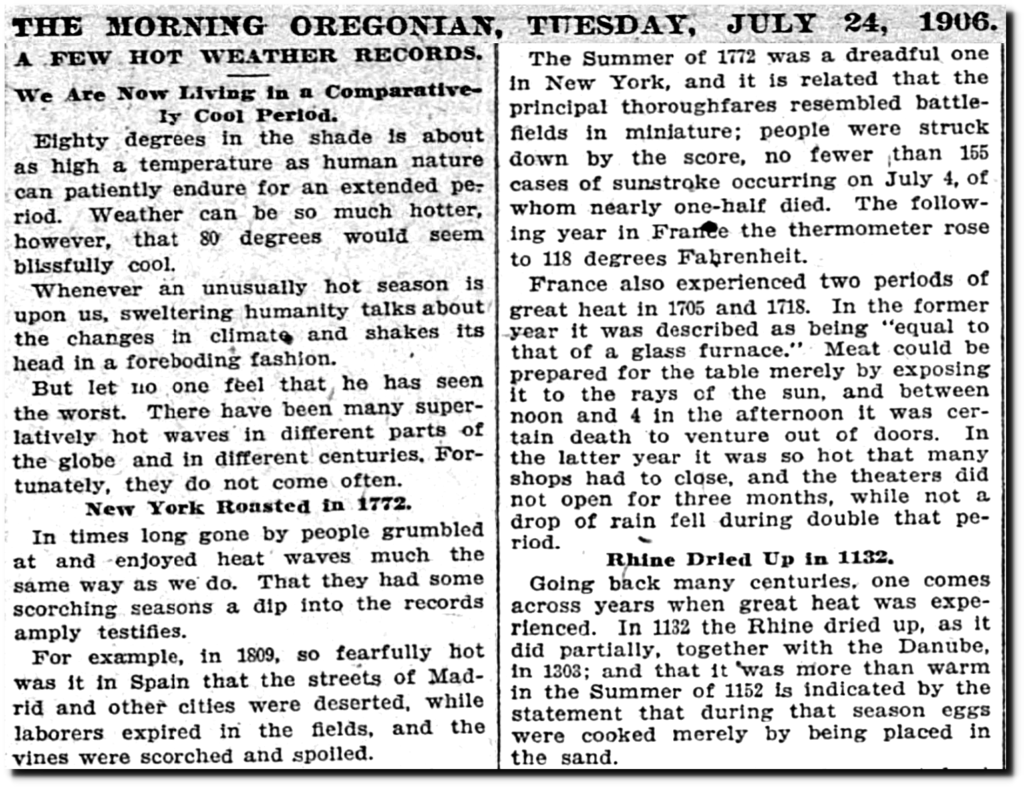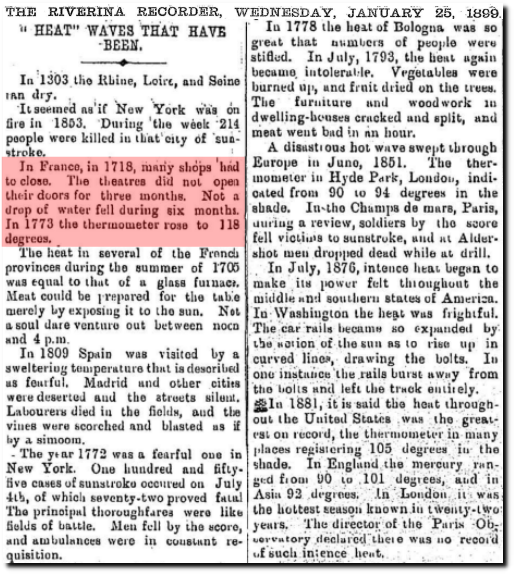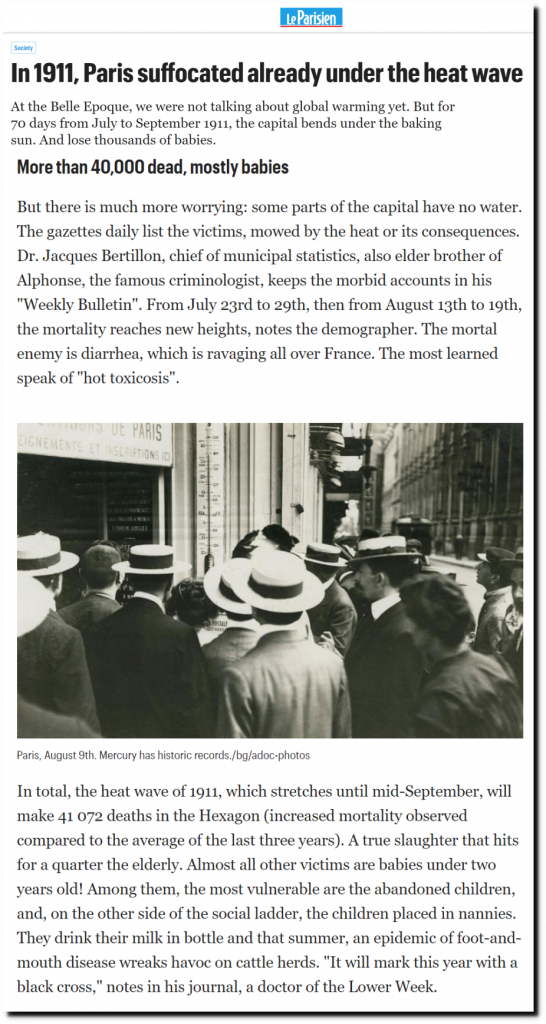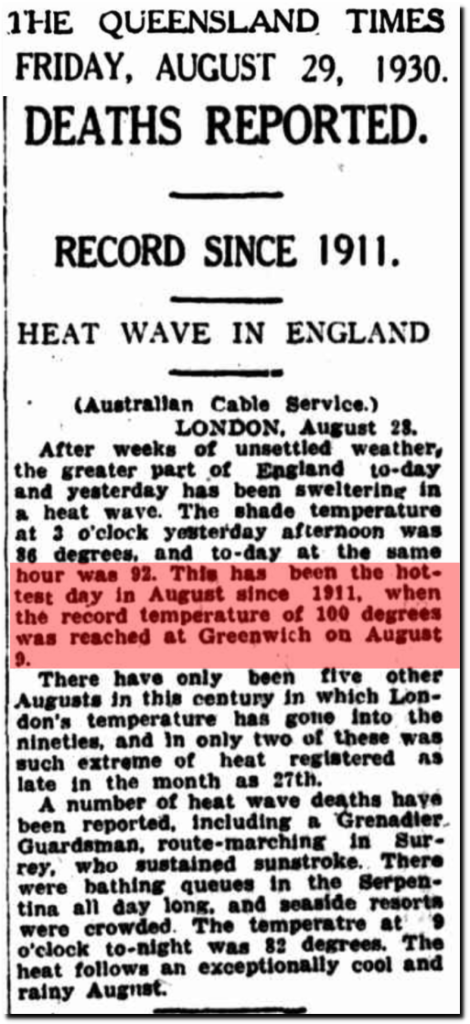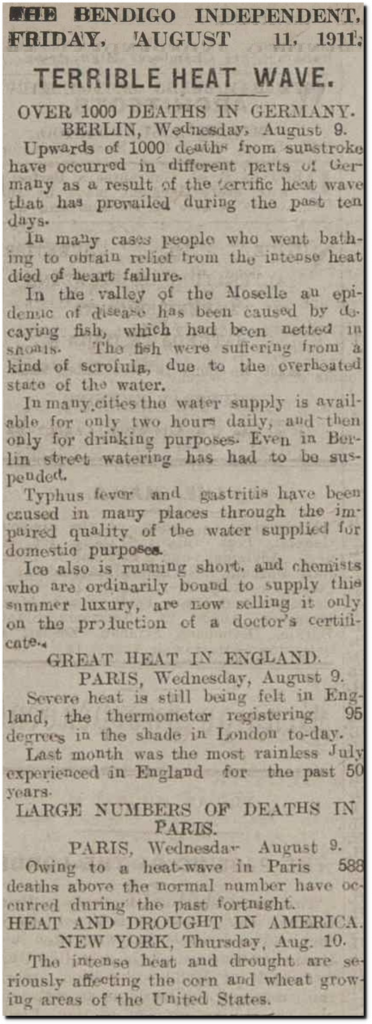The Guardian claims recent European droughts are the worst in 2,000 years.
Climate crisis: recent European droughts ‘worst in 2,000 years’ | Climate change | The Guardian
But if they read their own newspaper, they would know that isn’t true.
In 1132 the earth opened, and the rivers and springs disappeared in Alsace. The Rhine was dried up. In 1152 the heat was so great that eggs were cooked in the sand. la 1160, at the battle of Bela. a great number of soldiers died from the heat. In 1276 and 1277, in France, there was an absolute failure of the crops of grass and oats. In 1303 and 1304, the Seine. the Loire, the Rhine, and the Danube, were passed over dry-footed.
18 Jul 1852, 7 – The Observer at Newspapers.com
Gaillard’s Medical Journal – Google Books
17 Jul 1852, 7 – The Hampshire Advertiser at Newspapers.com
21 Aug 1901, Page 3 – Shelby County Herald at Newspapers.com
A RECORD OF HOT SUMMERS.
IN 637 the heat was so great in France and Germany that all springs dried up, and water became so scarce that many people died of thirst.
In 873 work in the field had to be given up ; agricultural labourers persisting in their work were struck down in a few minutes, so powerful was the sun.
In 993 the sun’s rays were so fierce that vegetation burned up as under the action of fire.
In 1000 rivers ran dry under the protracted heat ; the fish were left dry in heaps, and putrified in a few hours. The stench that ensued produced the plague.
Men and animals venturing in the sun in the summer of 1022 fell down dying; the throat parched to a tinder and the blood rushed to the brain.
In 1132 not only did the rivers dry up but the ground cracked on every side, and became baked to the hardness of stone. The Rhine in Alsace nearly dried up.
Italy was visited with terrific heat in 1139; vegetations and plants were burned up.
During the battle of Bela, in 1260, there were more victims made by the sun than by weapons; men fell down sunstruck in regular rows.
In 1303 and 1304 the Rhine, Loire, and Seine ran dry.
Scotland suffered particularly in 1625; men and beasts die in scores.
The heat in several French departments during the summer of 1705 was equal to that in a glass furnace. Meat could be cooked by merely exposing it to the sun. Not a soul dared venture out between noon and 4 p.m.
In 1718 the thermometer rose to 118 deg.
In 1779 the heat at Bologna was so great that a great number of people was stifled. There was not sufficient air for the breath, and people had to take refuge under-ground.
In July, 1793, the heat became intolerable. Vegetables were burned up, and fruit dried upon the trees. The furniture and woodwork in dwelling-houses cracked and split up; meat went bad in an hour.
The rivers ran dry in several provinces during 1811; expedients had to be devised for the grinding of corn.
In 1822 a protracted heat was accompanied by storms and earthquakes; during the drought legions of mice overran Lorraine and Alsace, committing incalculable damage.
In 1832 the heat brought about cholera in France; 20,000 persons fell victims to the visitation in Paris alone.
In 1846 the thermometer marked 125 deg. in the sun.
53C (127F) in 1935.
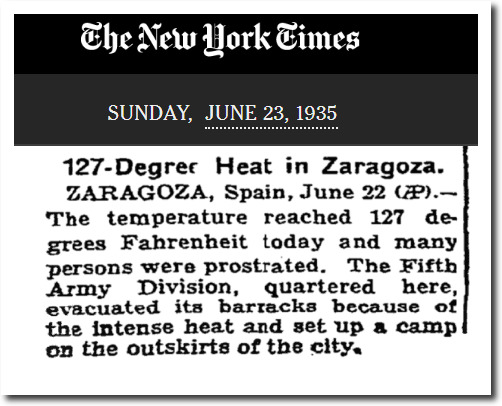 127-Degree Heat in Zaragoza. – The New York Times
127-Degree Heat in Zaragoza. – The New York Times
50C (122F) in 1930
p2 – 30 Aug 1930 – The Telegraph (Brisbane, Qld. : 1872 – 1947) – Trove
48C (118F) in 1773
25 Jan 1899 – “HEAT” WAVES THAT HAVE BEEN. – Trove
During the summer of 1911, Europe had a seventy day long heatwave which killed tens of thousands of people.
En 1911, Paris suffoquait déjà sous la canicule – Le Parisien
London was 100 degrees on August 9, 1911.
29 Aug 1930 – DEATHS REPORTED. – Trove
More than a thousand people died in Germany.

